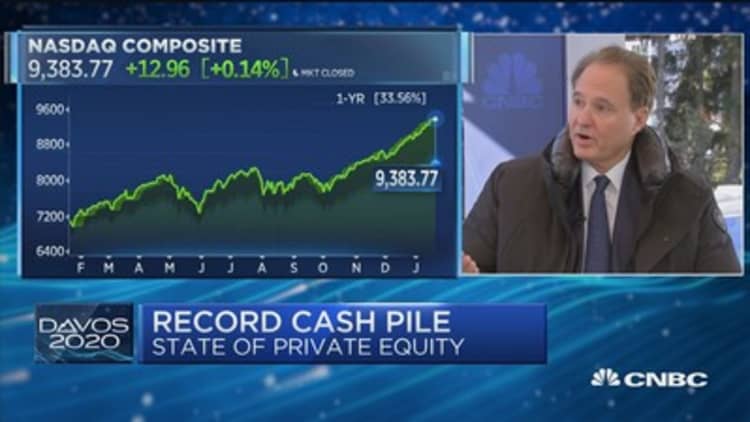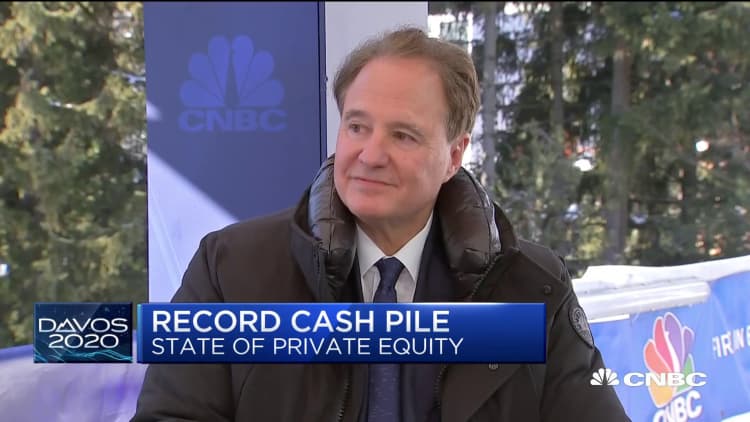
Steve Pagliuca, co-chair of private equity powerhouse Bain Capital, defended the industry, arguing Thursday that it has received an undeserved bad reputation.
Private equity has actually been a "great thing for America," he said on CNBC's "Squawk Box" from the World Economic Forum in Davos, Switzerland. "Private equity is not about cost cutting. It's about growth."
"No one wants to buy a company that is shrinking, so we spend all of our time thinking, 'How do we grow companies? How do we do more R&D? How do we invest in new products?'" he explained.
Private equity has faced criticism recently from Democratic presidential candidates, most notably Sens. Elizabeth Warren and Bernie Sanders, who argue it hurts average workers.
The 2020 primary is not the first time private equity has drawn the ire of politicians.
In the 2012 presidential election, then-GOP nominee and former Massachusetts Gov. Mitt Romney was criticized for his past work at Bain Capital, the Boston-based firm with $105 billion in assets under management. Romney is currently a U.S. senator from Utah.
Opponents of private equity take aim at the way those firms acquire companies and load them with debt. Critics argue that private equity firms enrich themselves through dividends and other means — such as a standard 2% annual fee and 20% share of profits above a predetermined level — while the companies they buy sometimes go under.
Many retail companies bought by private equity in the 2000s, for example, such as Payless ShoeSource, Sports Authority and Toys R Us struggled to meet their debt obligations and filed for bankruptcy. Thousands of people lost their jobs as those company struggled to keep up with changes in the industry. Bain Capital was among the companies that took over Toys R Us in 2005.
Defenders of private equity such as Pagliuca argue the benefits they provide to the companies they acquire — and the economy writ large — are not fully understood. He said the goal of private equity is to add value to smaller or struggling companies, helping to transform them on a global scale.
One example is Canada Goose, the maker of high-end parka jackets. Bain Capital acquired 70% of the company in 2013 when it was worth $250 million, according to the Boston Globe. The private equity firm helped guide Canada Goose to an IPO in 2017, at which point the Toronto-based company was worth more than $1.5 billion. Its stock market value is now roughly $3.5 billion.
Pagliuca also pointed to Bain Capital's recent $350 million investment to create a company that seeks to develop more than a dozen central nervous system drugs from Pfizer. "We're going to put them through the trials and commercialize them. That's great capital. That's growth," he said.
"Private equity, I think, has gotten a bad rap out there politically, but it's actually a big part of the economy. It's been a big success," Pagliuca added, citing a statistic that says private equity employs about 9 million people.
That's likely drawn from a 2019 study that found the industry directly employs 8.8 million people who collectively earned $600 billion in wages and benefits. The study was conducted by the EY consultancy and the American Investment Council, a private equity advocacy group.
Bain Capital, in particular, has "increased jobs by 1.1 million since we've bought the companies. That's a fact," Pagliuca said. "I think it's time to set the record straight." He's also co-owner of the NBA's Boston Celtics.







